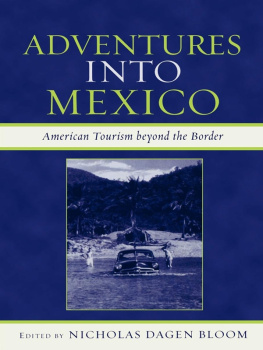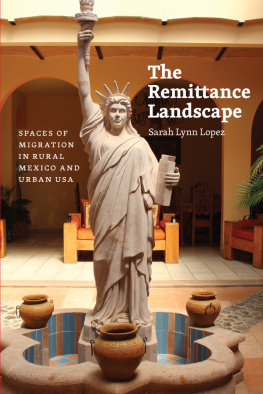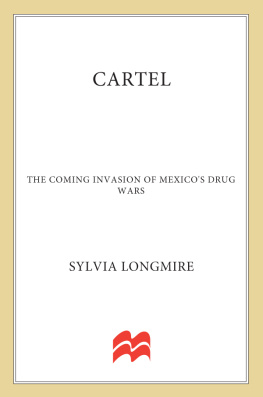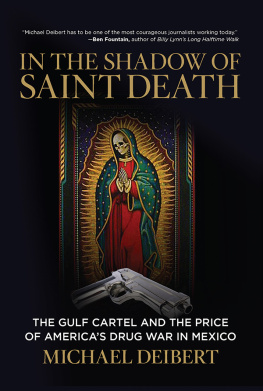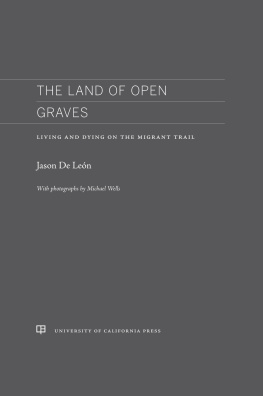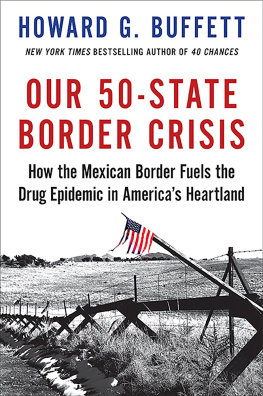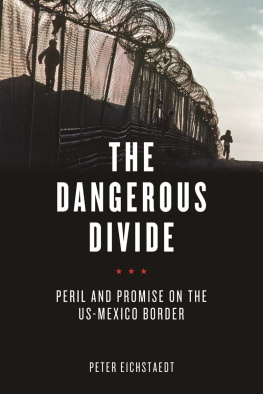Deported to Death
CALIFORNIA SERIES IN PUBLIC ANTHROPOLOGY
The California Series in Public Anthropology emphasizes the anthropologists role as an engaged intellectual. It continues anthropologys commitment to being an ethnographic witness, to describing, in human terms, how life is lived beyond the borders of many readers experiences. But it also adds a commitment, through ethnography, to reframing the terms of public debatetransforming received, accepted understandings of social issues with new insights, new framings.
Series Editor: Robert Borofsky (Hawaii Pacific University)
Contributing Editors: Philippe Bourgois (University of Pennsylvania), Paul Farmer (Partners In Health), Alex Hinton (Rutgers University), Carolyn Nordstrom (University of Notre Dame), and Nancy Scheper-Hughes (UC Berkeley)
University of California Press Editor: Naomi Schneider
University of California Press, one of the most distinguished university presses in the United States, enriches lives around the world by advancing scholarship in the humanities, social sciences, and natural sciences. Its activities are supported by the UC Press Foundation and by philanthropic contributions from individuals and institutions. For more information, visit www.ucpress.edu.
University of California Press
Oakland, California
2019 by Jeremy Slack
Library of Congress Cataloging-in-Publication Data
Names: Slack, Jeremy, author.
Title: Deported to death : how drug violence is changing migration on the US-Mexico border / Jeremy Slack.
Description: Oakland, California : University of California Press, [2019] | Series: California series in public anthropology | Includes bibliographical references and index. |
Identifiers: LCCN 2018058267 (print) | LCCN 2019000207 (ebook) | ISBN 9780520969711 (ebook) | ISBN 9780520297326 (cloth : alk. paper) | ISBN 9780520297333 (pbk. : alk. paper)
Subjects: LCSH : ImmigrantsViolence againstMexico. | ViolenceMexican-American Border Region. | Immigration enforcementMexican-American Border Region. | DeportationUnited States21st century.
Classification: LCC HV 6250.4. E 75 (ebook) | LCC HV 6250.4. E 75 S 54 2019 (print) | DDC 303.60972/1dc23
LC record available at https://lccn.loc.gov/2018058267
Manufactured in the United States of America
28 27 26 25 24 23 22 21 20 19
10 9 8 7 6 5 4 3 2 1
For Carla, for everything you have lost and for accompanying me on this journey.
ACKNOWLEDGMENTS
First and foremost, I want to acknowledge the invisible labor that goes into my fortunate life circumstances that allow me to have a job, a family, and a productive research agenda. My wife, Carla Soto, has accompanied me on hundreds of my research-related experiences: trips to visit people at the shelters; touching base after a long hiatus; attending marches, protests, and organizing meetings for the immigrant rights community; or simply enduring excruciatingly boring, endless conversations about research, academia, and the politics of migration over a meal or drinks ( Sorry, amor. Ill try not to, but I would be lying if I said I could stop ). You have been a companion on so much of this difficult journey, and your support has made all the difference. I look around at my friends and colleagues, realizing in starkly personal and often embarrassing terms how the work you do makes it possible to me to have everything. You do so much of the work of life, the work of a family, raising our newborn son, and keeping our household from falling down as I abscond to write, give talks, testify, and teach classes. I could not do what I do and still have a functional, happy, healthy life without you.
I also want to thank Daniel E. Martnez for being my collaborator and friend throughout this work and beyond. It feels somewhat disconcerting not to co-author our work this time around, as our different perspectives and approaches to social science create a tension that I feel elevates this research beyond what I am capable of alone. I really could not have written this book without your support, insight, and collaboration. I cant wait to see all the new research and publications that we accomplish in the future, although, as always, there will be little time to stop and appreciate it with so much more to do!
I also owe a special gratitude to Scott Whiteford for supporting me throughout this journey. From the time I was an MA student until my first job, he always encouraged me to push the envelope and dream big. He provided the contacts and framework to make this research possible and taught me a lot about navigating the often unpredictable academic world.
I am also lucky to find myself employed by a university where my interests and approaches do not sit in isolation. I would like to thank all of my colleagues in the Department of Sociology and Anthropology, but particularly Josiah Heyman and Howard Campbell for their support, encouragement, and uncanny ability to push me harder. It is tempting to stay in a safe zone and publish relatively easy work with recycled or somewhat obvious conclusions, but being around such accomplished border scholars has helped me to think deeper and work harder. Dr. Heyman is the model of an applied scholar that I aspire to follow, successfully balancing the production of academic knowledge with contributions to the never-ending activist struggles for change in our border community. Dr. Campbell provides my steady reminder to let go of the baggage of academia and focus on what matters: the people, the streets, and the unique world that is Ciudad Jurez and the border. Fidelity to place and love of a region is what has kept me going in this research and it is what I hope to hold dear for the rest of my career.
I want to thank Diane Austin, who had a formative influence on my knowledge of research methods and on my ability to conduct projects that push me beyond my boundaries. She drove me harder than anyone else, held my feet to the fire to get my notes written and reports finished, and I emerged the better for it. I will be eternally grateful for that education.
This project would not have been possible without the generous support of the Ford Foundation, Mexico and Central America Office. I must thank them not only for their financial support but also their logistical support in connecting our project with others working diligently on issues of migration and drug violence in Mexico. This network has proven invaluable for increasing the impact of our work by getting it into the hands of people who can use it to complement their own efforts. Of particular importance is the work of Kimberley Krasevac and her support but also her critiques, which helped push this research into new areas and answer important, relevant questions that expand beyond the boundaries of academia.
I also need to thank the Drugs Security and Democracy Fellowship funded by the Social Science Research Council and the Open Society Foundation for their support of my ethnographic research. This funding, as well as the network of scholars, has been invaluable to the improvement and development of this project. In addition, a special thanks to the National Institutes of Health BUILDing Scholars program for summer sabbatical funding to write this book and Dr. Luis Zayas for his comments and suggestions on early drafts of the proposal.


